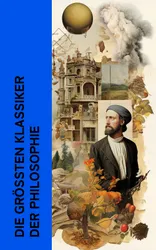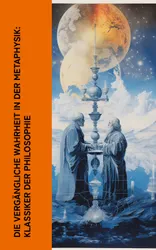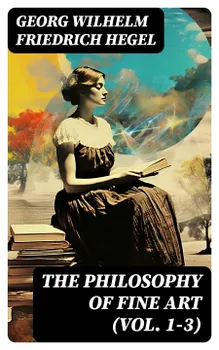Georg Wilhelm Friedrich Hegel's seminal work, "The Philosophy of Fine Art" (Volumes 1-3), offers a profound exploration of the interplay between art, culture, and philosophy. Hegel employs a dialectical method to analyze the evolution of artistic expression, asserting that art serves as a manifestation of the Absolute Spirit. Through detailed examinations of various art forms—visual arts, music, and literature—Hegel delves into their aesthetic qualities while situating them within historical contexts. His dense yet poetic prose invites readers to reflect on the nature of beauty and the role of the artist in society, ultimately positing that art reveals the underlying rationality of the world itself. Hegel, a pivotal figure in German Idealism, draws on his background in philosophy, history, and aesthetics to enrich his arguments. His engagement with contemporary thinkers and the socio-political landscape of 19th-century Europe profoundly influenced his reflections on art. Hegel's belief in the power of human creativity is underscored by his conviction that art not only reflects but also shapes human consciousness, making it a vital element of cultural development. This remarkable scholarly work is essential for those seeking to comprehend the complexities of art through a philosophical lens. It appeals to art historians, philosophers, and anyone fascinated by the intersections of creativity and intellectual thought. Hegel's insights invite readers to reconsider their understanding of art's role in cultivating the human experience.

Meisterwerke der Weltphilosophie : Das Gastmahl, Nikomachische Ethik, Also sprach Zarathustra, Utopia, Phänomenologie des Geistes, Neues Organon, Selbstbetrachtungen
Immanuel Kant, Søren Kierkegaard, Edmund Husserl, Ludwig Wittgenstein, Friedrich Nietzsche, Konfuzius, Platon, Xenophon, Aristoteles, Laotse, Marcus Tullius Cicero, Marcus Aurelius, Plotin, Thomas von Aquin, Niccolò Machiavelli, Thomas Morus, Giordano Bruno, Michel de Montaigne, René Descartes, Francis Bacon, Blaise Pascal, Baruch Spinoza, Gottfried Wilhelm Leibniz, David Hume, Jean Jacques Rousseau, Friedrich Schelling, John Locke, Georg Wilhelm Friedrich Hegel, John Stuart Mill, Karl Marx
book
Líneas fundamentales de la filosofía del derecho : o compendio de derecho natural y ciencia del Estado
Georg Wilhelm Friedrich Hegel
book
Wissenschaft der Logik
Georg Wilhelm Friedrich Hegel
book
Vorlesungen über die Philosophie der Natur IV : Anhang
Georg Wilhelm Friedrich Hegel
book
Phänomenologie des Geistes
Georg Wilhelm Friedrich Hegel
book
50 Meisterwerke der Philosophie : Metaphysik, Das Gastmahl, Bhagavadgita, Tractatus logico-philosophicus, Kritik der reinen Vernunft, Also sprach Zarathustra, Selbstbetrachtungen von Marcus Aurelius
Ludwig Wittgenstein, Edmund Husserl, Karl Marx, Søren Kierkegaard, Friedrich Nietzsche, Ralph Waldo Emerson, John Stuart Mill, Georg Wilhelm Friedrich Hegel, Friedrich Schelling, Johann Gottlieb Fichte, Immanuel Kant, John Locke, Montesquieu, Jean Jacques Rousseau, David Hume, Gottfried Wilhelm Leibniz, Baruch Spinoza, Konfuzius, Laotse, Platon, Xenophon, Aristoteles, Marcus Tullius Cicero, Seneca, Epiktet, Marc Aurel, Plotin, Thomas von Aquin, Nicolaus von Cues, Erasmus von Rotterdam, Niccolò Machiavelli, Tommaso Campanella, Martin Luther, Giordano Bruno, Samuel von Pufendorf, Abbé Castel de Saint-Pierre, Michel de Montaigne, René Descartes, Francis Bacon, Blaise Pascal
book
Vorlesungen über die Geschichte der Philosophie IV : Nachschriften zu dem Kolleg des Wintersemesters 1827/28
Georg Wilhelm Friedrich Hegel
book
The Collected Works of Georg Wilhelm Friedrich Hegel
Georg Wilhelm Friedrich Hegel
book
Hegel: Lectures on Philosophy : The Philosophy of History, The History of Philosophy, The Proofs of the Existence of God
Georg Wilhelm Friedrich Hegel
book
Die größten Klassiker der Philosophie : Also sprach Zarathustra, Utopia, Phänomenologie des Geistes, Neues Organon, Selbstbetrachtungen, Das Gastmahl, Nikomachische Ethik
Immanuel Kant, Søren Kierkegaard, Edmund Husserl, Ludwig Wittgenstein, Friedrich Nietzsche, Konfuzius, Platon, Xenophon, Aristoteles, Laotse, Marcus Tullius Cicero, Marcus Aurelius, Plotin, Thomas von Aquin, Niccolò Machiavelli, Thomas Morus, Giordano Bruno, Michel de Montaigne, René Descartes, Francis Bacon, Blaise Pascal, Baruch Spinoza, Gottfried Wilhelm Leibniz, David Hume, Jean Jacques Rousseau, Friedrich Schelling, John Locke, Georg Wilhelm Friedrich Hegel, John Stuart Mill, Karl Marx
book
Metaphysik: Zwischen flüchtiger Wahrheit und ewiger Suche : Meisterwerke der Philosophie: Metaphysische Anfangsgründe der Naturwissenschaft, Träume eines Geistersehers, Grundzüge der Philosophie, Götzen-Dämmerung
Platon, Aristoteles, Plotin, Thomas von Aquin, René Descartes, Baruch Spinoza, Thomas Hobbes, Immanuel Kant, Gottfried Wilhelm Leibniz, Friedrich Wilhelm Joseph Schelling, Georg Wilhelm Friedrich Hegel, Arthur Schopenhauer, Moses Mendelssohn, Friedrich Nietzsche, Rudolf Steiner
book
Die vergängliche Wahrheit in der Metaphysik: Klassiker der Philosophie : Metaphysische Anfangsgründe der Naturwissenschaft, Träume eines Geistersehers, Grundzüge der Philosophie, Götzen-Dämmerung
Platon, Aristoteles, Plotin, Thomas von Aquin, René Descartes, Baruch Spinoza, Thomas Hobbes, Immanuel Kant, Gottfried Wilhelm Leibniz, Friedrich Wilhelm Joseph Schelling, Georg Wilhelm Friedrich Hegel, Arthur Schopenhauer, Moses Mendelssohn, Friedrich Nietzsche, Rudolf Steiner
book
